The one thing you need to do to prepare your grill for summer, according to experts
How to prepare your charcoal, gas, pellet or electric grill for the months ahead

Now that spring is here, it's time to dust off your gas or charcoal grill in preparation for the warmer months ahead. When your grill has been sitting dormant for a while though, it's important to give it a little TLC before you fire it up.
Even the best grills need a little maintenance to keep them running smoothly. Knowing how to clean your grill is one thing, but it pays off to make a bit of extra effort when it's not been used in a while. If, like many people, you store your grill in a garden shed when it's not in use, there are likely a few cobwebs that need to be cleared away in advance of your first cookout. The most important jobs lie inside the grill itself though, where inevitable buildup of bacteria and moisture could impact both your grill's performance and the safety of your BBQ the first time you use it this year.
To find out the best way to get your grill ready for summer, we spoke to some BBQ experts who shared some handy tips on how to clean and re-season your gas, charcoal, electric or pellet grill before you start flipping burgers. Here's what they said.
Why it's important to burn off your grill
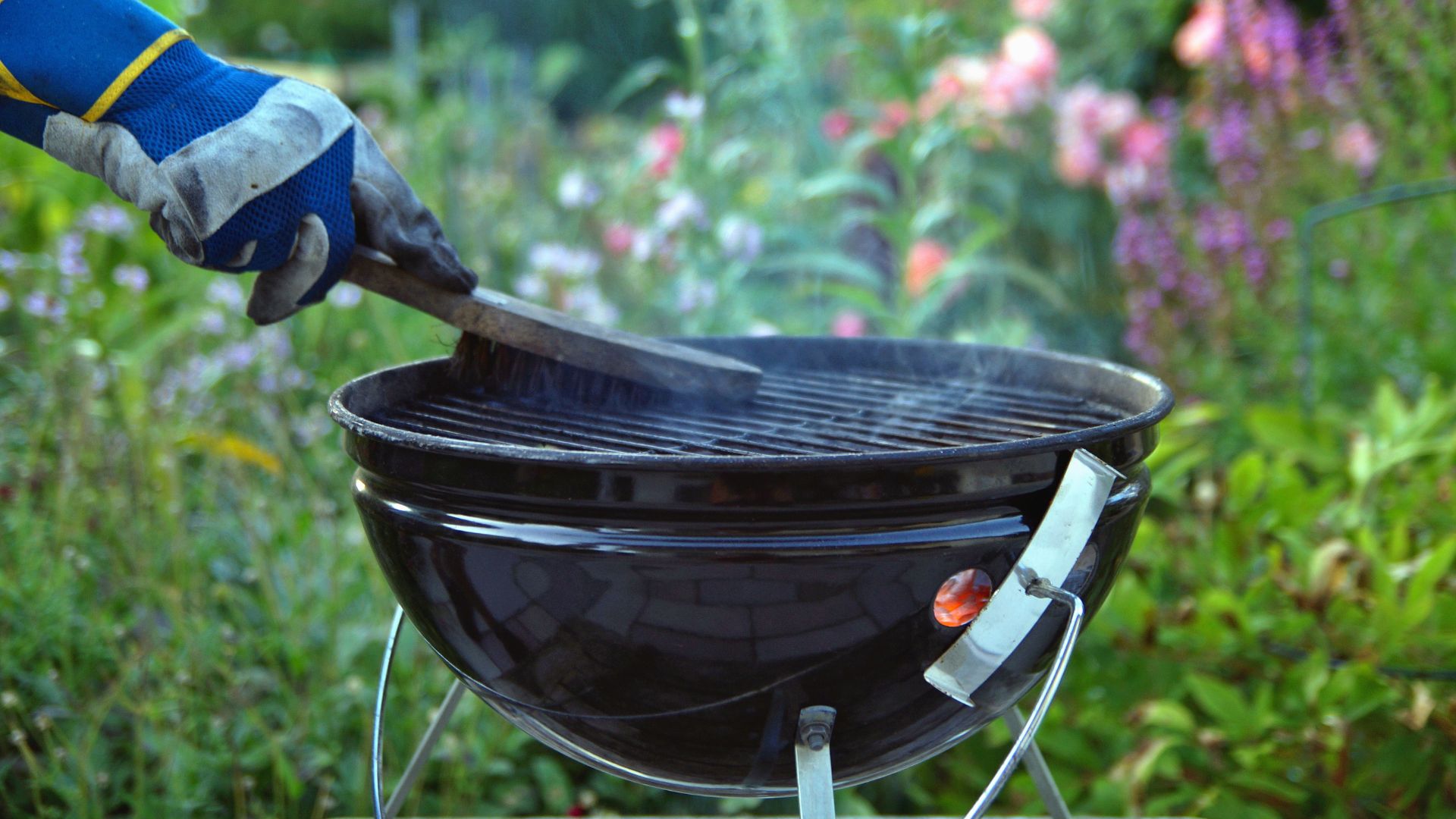
We've all been guilty of leaving grease and residue on a grill, and while this could be a problem when cooking indoors, grills are designed to reach extremely high temperatures that will effectively burn off the bad stuff before it can get on your food.
Before you start cooking your hot dogs this summer, the most important thing you should do is burn off any residue from your grill. Even if you gave your grill a good clean before you covered it up for the winter months, this is still a good idea as it can kill off any hidden nasties that may otherwise make their way onto your food. This step will also make your grill last longer in the long term.
How to prepare your grill for summer
1. Burn off any residue
"The first and most vital step," said Dan Cooper, Culinary Manager at Weber, "is to heat your barbecue to its max temperature for 30 minutes. This will burn off most old residual grease and fat. Then turn off your barbecue to allow it to start cooling down."
Dan pointed out that this is more essential in some grills than others. "This is not so necessary with a charcoal barbecue, although burning off the cooking grate is a sure way to ensure it's sterile."
Sign up to get the BEST of Tom's Guide direct to your inbox.
Get instant access to breaking news, the hottest reviews, great deals and helpful tips.
We also spoke to Ben Forte, International Marketing Director at charcoal grill company Kamado Joe. He agreed that even for charcoal grills, "once or twice a year, a thorough clean-through is a good idea. Burning off your grills at high heat will always do the trick!"
To do this, Ben told us to "fire it up to 315°C or 600°F and hold the temperature for 15-20 minutes — that will do the trick. The gasket will be cleaned through natural heat cycling when you use your grill."
2. Clean your cooking grate
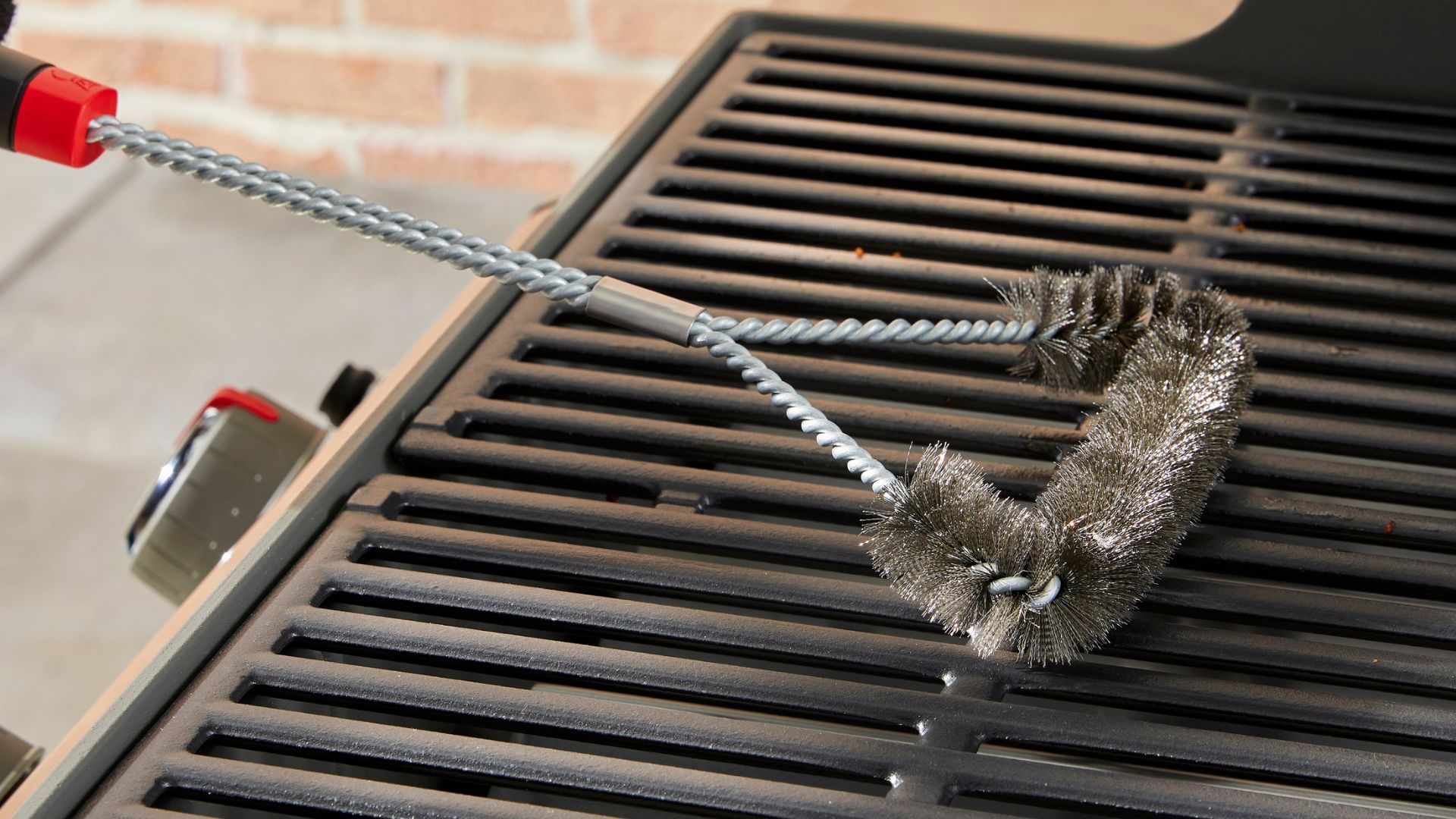
Dan told us that the next step you should take when preparing your grill for summer is to clean the cooking grate.
"While your barbecue is still hot, brush the cooking grates with a BBQ brush to remove any leftover detritus from the burn off process. Make sure to wear protective gloves during this step."
If you're cooking on a Kamado grill, you may also want to clean your deflectors. These sit underneath the grill to limit direct heat.
"When your heat deflectors get dirty during normal use, flip them over, with the dirty side down, for the next cook." said Ben. "The heat from the fire will self-clean that side of the deflector plate."
3. Deep-clean the inside of your grill
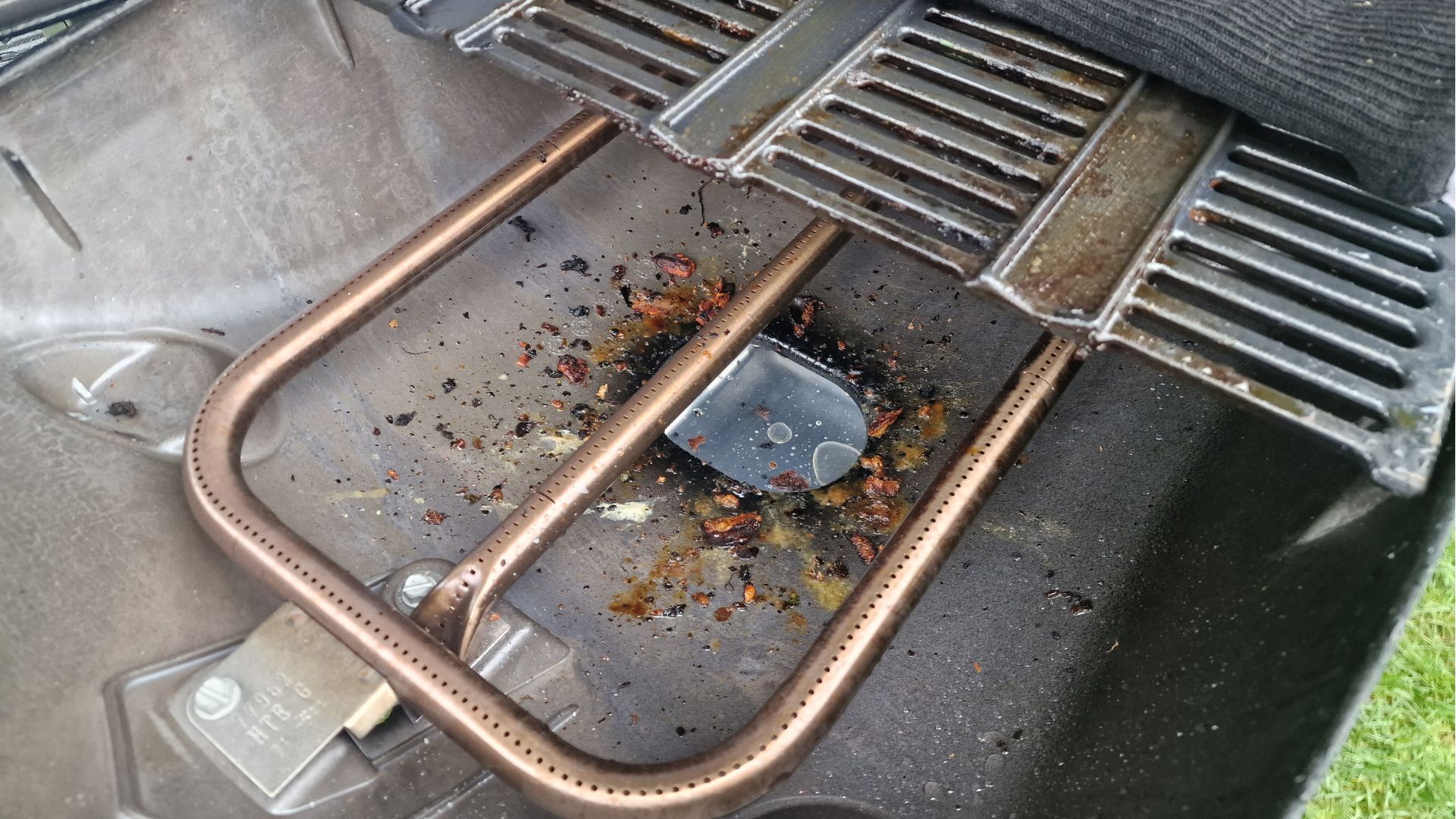
For regular cleans, it won't be necessary to disassemble most grills, but when doing a bi-annual deep clean it can help to remove any built-up debris. This has the added benefit of keeping your grill looking shiny and new.
When cleaning a Kamado grill, Ben Forte told us to "remove all the internal components (they lift out easily) and remove any ash or debris that has collected inside. Wash the cooking grates with a mild detergent. Use a plastic bristle brush to clean the inside ceramic surface. Then, scoop or vacuum debris from the bottom of the grill before replacing the internal components."
If you're cleaning a gas or charcoal grill, similar steps apply. "Once the grill has cooled down, remove all internal components, and use a BBQ brush and scraper clean everything. We would always recommend using rubber gloves for this part" said Dan. "Once complete, place all clean parts back into the grill. Make sure you don’t jet wash or put components in the dishwasher as this can cause some parts to rust."
4. Give the exterior a wipe-down
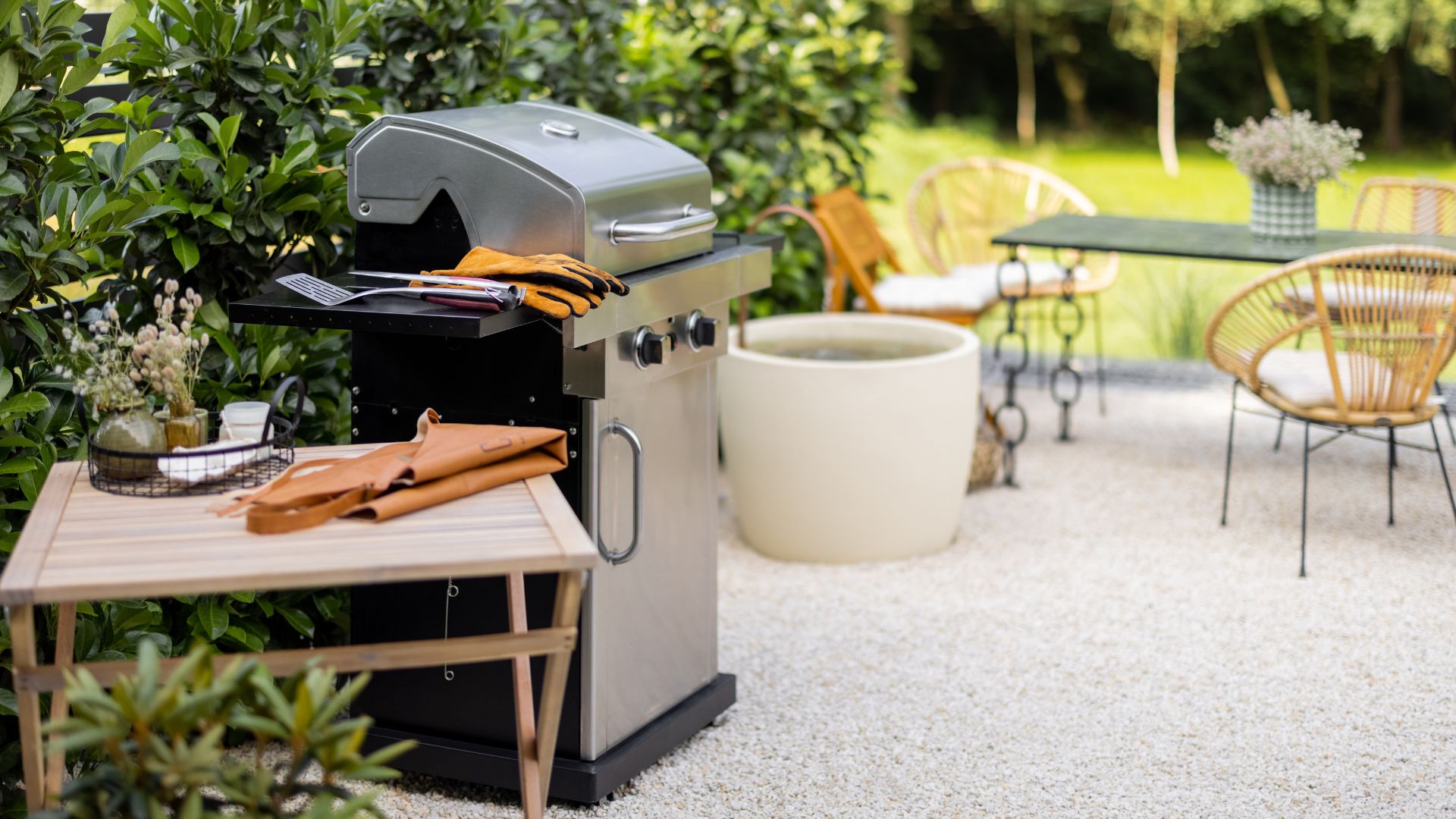
Finally, you should give your newly-spruced grill a wipe-down to keep it looking fresh. "For the best shine I use a microfiber cloth" said Dan.
"My personal cleaning arsenal always includes a brush, cook box scraper, rubber or latex gloves, enamel, and stainless-steel cleaner sprays, and a microfiber cloth for drying and buffing."
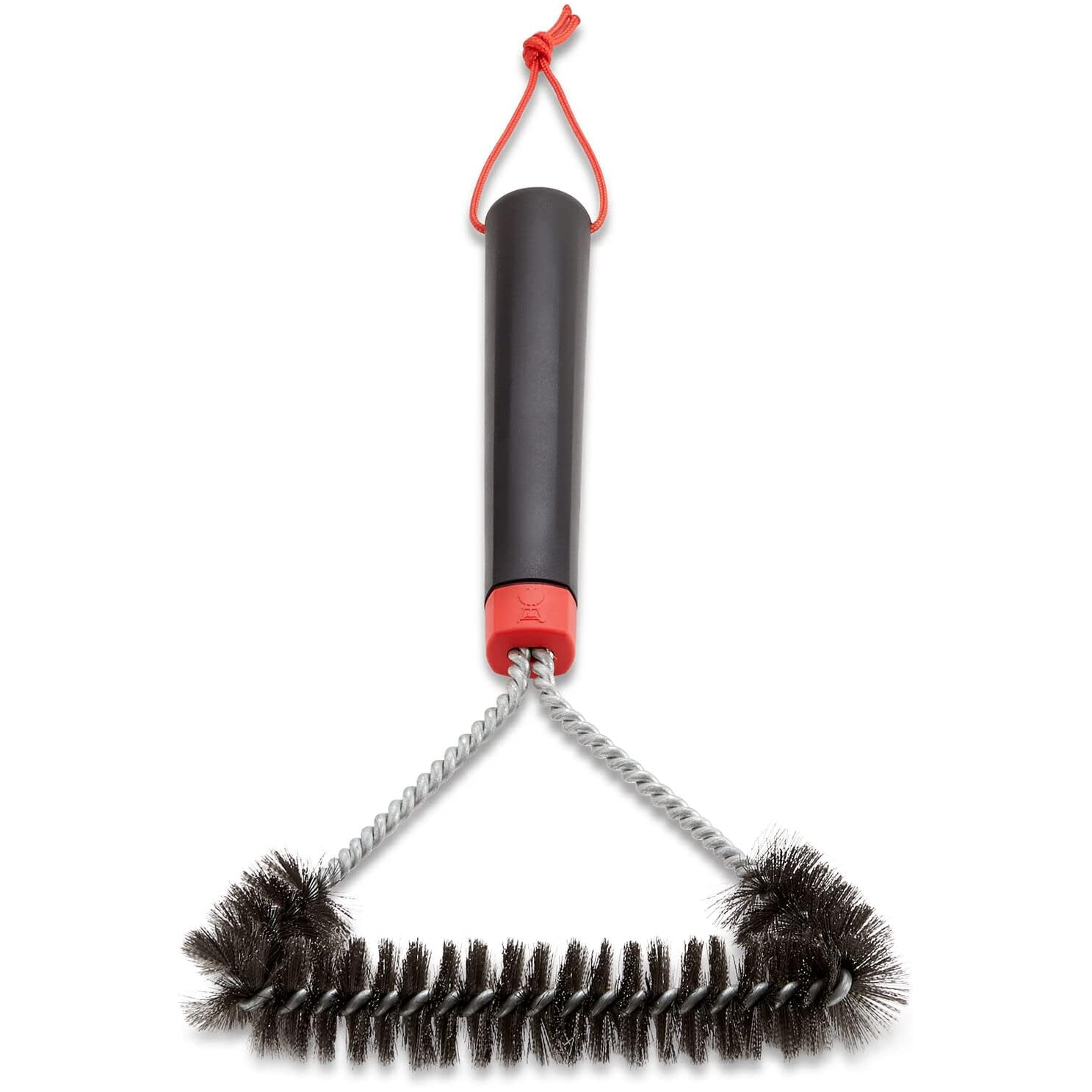
Designed to scrub burnt-on food from your grates, this wire brush will keep your grill gleaming. Our guide to the best grill brush has more options.
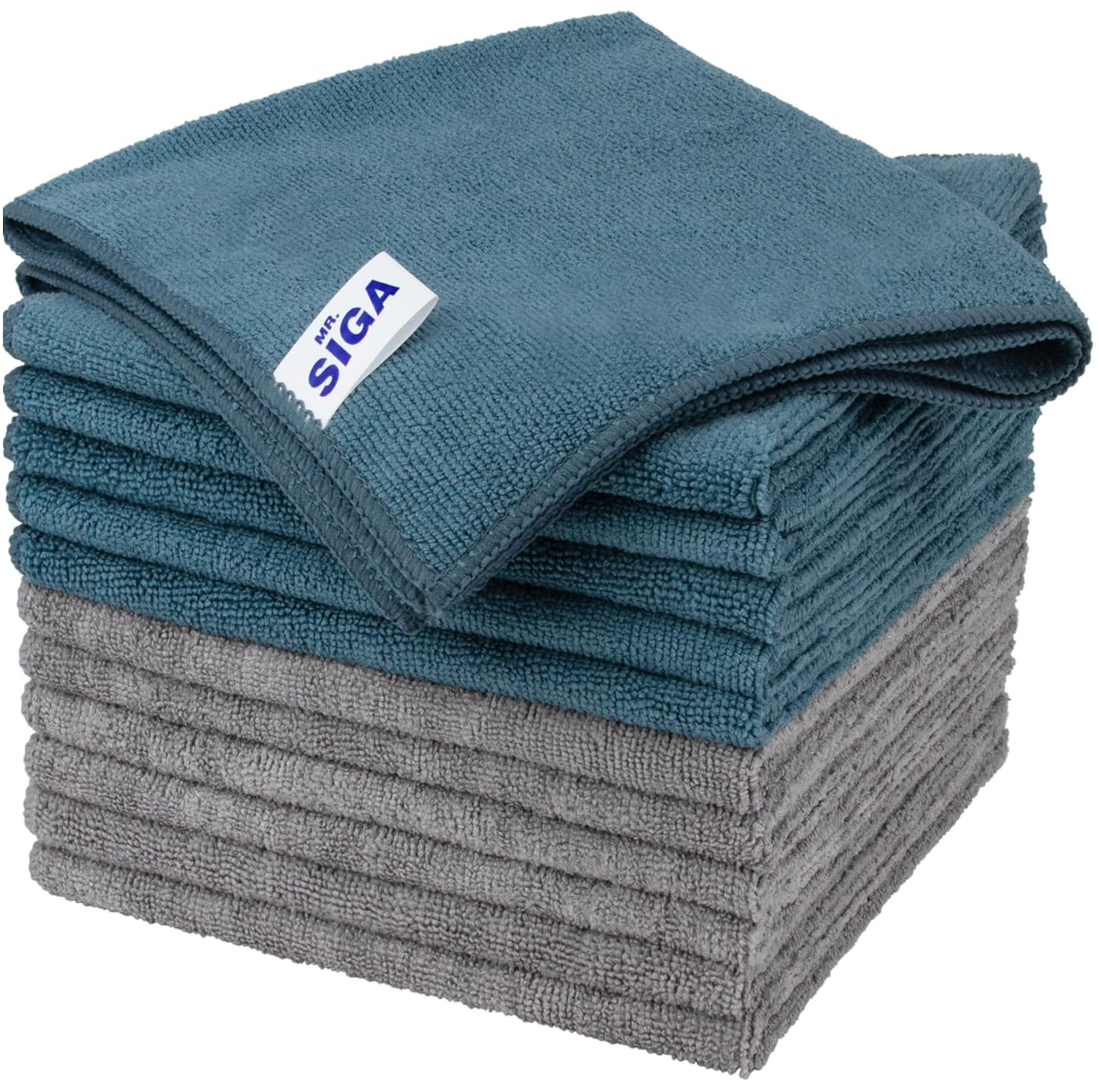
Ideal for buffing away fingerprints on the exterior of your grill, and drying the interior after cleaning, it's always helpful to have microfiber cloths on-hand when cleaning a grill.
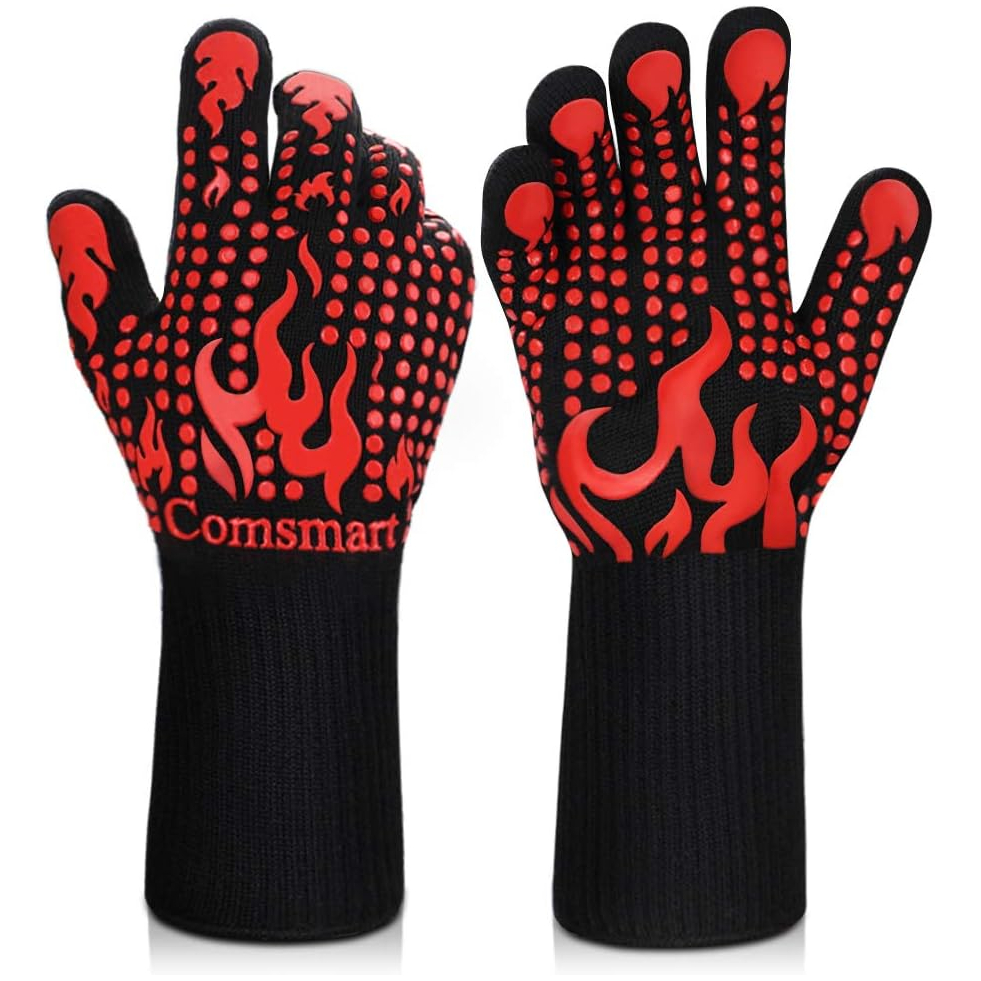
Heat-safe up to 1472°F, these BBQ gloves are machine-washable and perfect both for cooking and cleaning your grill.
5. Check your fuel
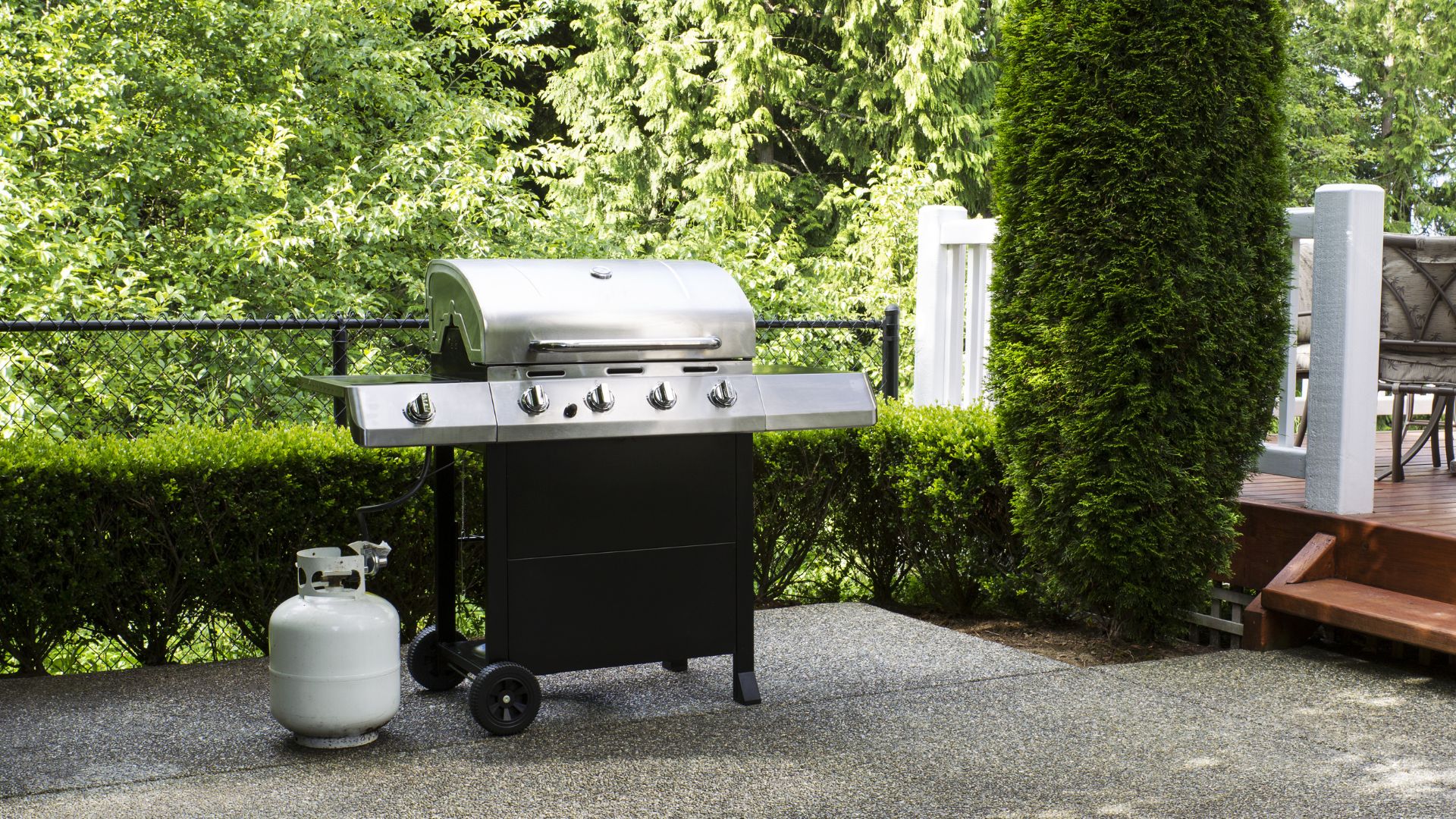
Although this won't apply to those who use a charcoal or pellet grill, it's important to check your gas supply before using your gas grill for the first time this summer.
Dan Cooper told us, "the most important step to check before you start barbecuing is ensuring the gas hose does not have any damage and risk of leaks, and that you actually have enough gas!"
It's worth checking that you have a good supply in your tank before you invite over friends and family, otherwise, you could be caught short when your food isn't fully cooked.

Ben Forte is International marketing director at Kamado Joe. He's a barbecue enthusiast, author and known for his smoky escapades at @bbqforte on Instagram.

Dan Cooper is Culinary Manager at Weber. His role involves recipe development and running live cooking shows which teach people how to get the most out of their grill.
More from Tom's Guide

Millie is the Senior Home Editor at Tom's Guide. She's been reviewing home tech for over five years, testing everything from coffee makers to the latest vacuum cleaners. Starting out in 2019 as a Staff Writer at TopTenReviews, Millie then moved on to Future's Homes portfolio, where she eventually oversaw all product testing as Head of Reviews.
With particular expertise in cookware and kitchen appliances, you'll struggle to find an air fryer Millie's not tested. She's traveled the world reporting on the latest home innovations and product launches, learning how to use pizza ovens from Pizzaiolos in Naples, and touring the De'Longhi factory in Venice.
When she's not reporting on home and appliance trends, Millie loves watching live music. She's currently learning the guitar - naturally, she plays a Fender.
